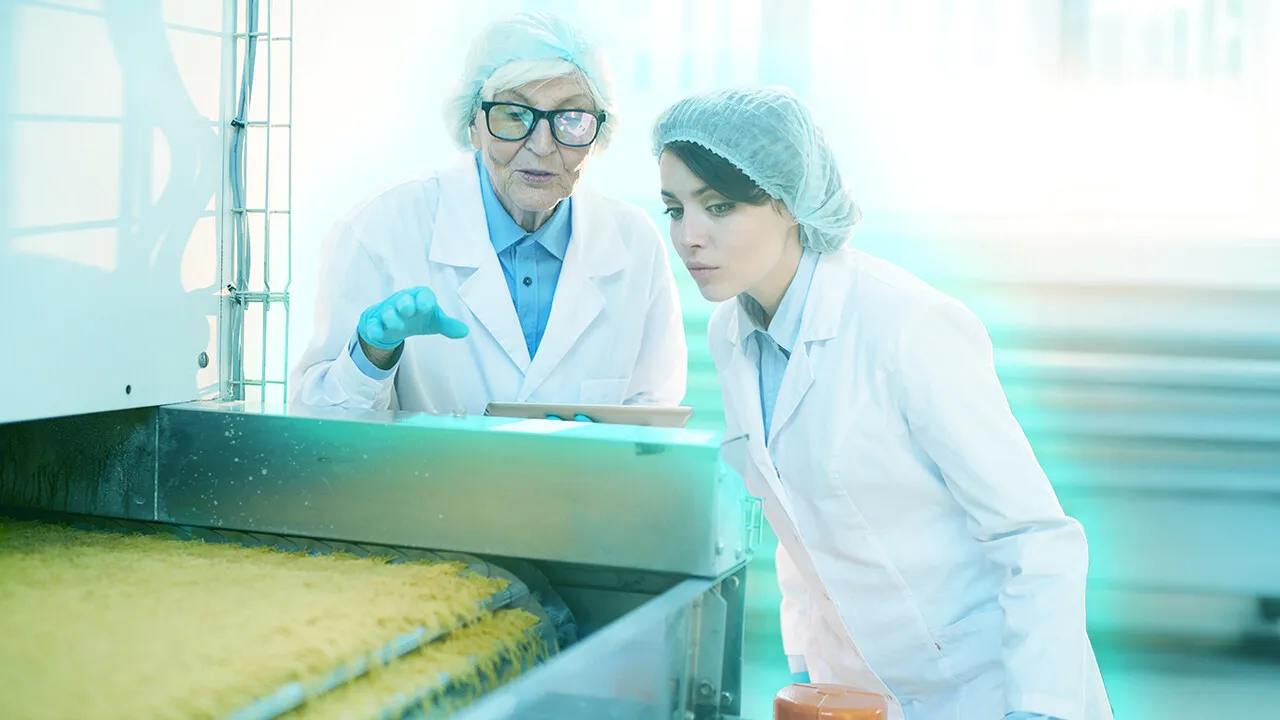September 1, 2025
Food Safety Simplified: How a LIMS Prevents Recalls and Ensures Compliance
Table of Content

A food product recall is a preventive action to remove products that pose health risks to consumers from the market. It can be the result of contamination, labeling errors, the presence of unwanted substances, or other problems that make consumption dangerous. The recall can be voluntary or mandatory.
Types of Recall: Voluntary and Required
There are two main types of recall in the food industry:
Voluntary Recall: occurs when the company itself identifies a problem and takes the initiative to withdraw the product from the market. This voluntary action, although costly, is seen as a measure of responsibility and proactivity to protect the consumer and the brand's reputation. Companies that conduct voluntary recalls demonstrate a commitment to consumer safety and tend to regain trust more quickly.
Mandatory Recall: This happens when regulatory authorities determine that the company withdraws a product from the market due to evidence of a risk to public health. This type of recall is more damaging to the company's image, as it shows that the problem has not been identified or resolved internally, requiring government intervention to protect consumers.
Main Causes of a Food Recall
Understanding the root causes of a recall helps identify failures and prevent future problems. The main reasons include:
- Contamination by Microorganisms: bacteria such as Salmonella and E. coli, among others, can contaminate food due to failures in hygiene, handling or storage.
- Chemical Contamination: The misuse of chemicals, such as pesticides and preservatives, or the presence of harmful residues can generate serious risks.
- Mislabeling: Mislabeling, especially when it involves allergens such as milk, soy, and peanuts, can be fatal for people with allergies.
- Foreign Bodies: fragments of glass, metal, or plastic can come into contact with food during production, putting the consumer's physical integrity at risk.
How Does a Recall Impact the Industry?
A food recall has significant and far-reaching impacts on the food industry, affecting everything from brand reputation to financial stability and regulatory obligations.
- Damage to Brand Reputation:
When a company issues a food recall due to contamination or mislabeling, it can erode consumer trust. Shoppers may become wary of the affected brand or even the entire product category, leading to lost sales and long-term loyalty issues.
- Financial Losses:
Recalls are costly. Companies face expenses related to retrieving products, destroying unsafe goods, conducting investigations, and managing public relations. Additionally, lost sales and potential legal settlements can create substantial financial burdens.
- Supply Chain Disruption:
A recall often triggers a chain reaction throughout the supply network. Manufacturers, distributors, and retailers must work together to remove products, which can interrupt normal operations and strain business relationships.
- Regulatory Scrutiny and Legal Action:
Food recalls draw the attention of regulatory agencies. Companies may face increased inspections, compliance reviews, and potential fines. In severe cases, recalls can prompt lawsuits from affected consumers or business partners.
- Industry-wide Consequences:
A major recall can impact the broader food industry. For example, a lettuce recall might lead consumers to avoid leafy greens altogether, impacting unrelated growers and brands. It can also prompt industry-wide changes in safety protocols and traceability standards.
- Operational Adjustments:
After a recall, companies often reevaluate and strengthen their safety protocols, invest in improved traceability, and increase staff training to prevent future incidents.
Companies start to invest more in technology and safety to avoid new recalls and ensure that their products meet safety standards.
Food Safety Legislation
Food safety legislation is strict and aims to protect public health and ensure quality standards in the industry. Here are some of the key regulations:
In the United States, the FDA (Food and Drug Administration) regulates food safety and has strict standards for recalls.
In Brazil, RDC Resolution No. 24/2015, for example, defines rules for food recalls and requires companies to notify the problem, disclose the recall and adopt corrective measures.
In the European Union, the European Food Safety Authority (EFSA) imposes high standards of safety and traceability, with strict regulations for the recall of products in cases of health risk.
These standards ensure that companies adopt safety processes to avoid recalls and that consumers are quickly informed in case of health risks.
How Technology Helps Prevent Recalls
Investing in technology is essential to ensure that food products comply with safety standards. Quality management tools, such as LIMS (Laboratory Information Management System), are essential for monitoring and tracking the quality of products, preventing potential problems.
Learn More: Enhancing Global Food Safety: Why the World Needs a LIMS
Key LIMS advantages include:
- Streamlined Sample Tracking
A LIMS tracks samples from receipt through analysis and storage. This traceability ensures that all ingredients and finished products can be traced back to their source, making it easier to identify potential contamination points early and address them before products leave the facility.
- Automated Quality Control
A LIMS automates the scheduling, execution, and recording of quality control tests. This reduces human error, enforces standard operating procedures, and ensures that every batch meets regulatory and company standards before it’s shipped.
- Rapid Results and Alerts
With real-time data management, a LIMS can quickly flag out-of-specification results or trends that indicate a potential problem. Immediate alerts allow food safety teams to act swiftly, stopping distribution of affected products before they reach consumers.
- Centralized Data and Reporting
All test results, certificates of analysis, and audit trails are stored in a centralized, searchable database. This means that if an issue is detected, companies can quickly access relevant data, pinpoint the affected lots, and isolate potential risks, limiting the scope and impact of a recall.
- Regulatory Compliance
LIMS solutions are designed to help meet global food safety standards. Automated documentation and reporting make it easier to pass audits and demonstrate compliance, reducing the risk of regulatory recalls.
- Supplier and Ingredient Management
A LIMS manages supplier data and incoming raw material test results. This oversight helps identify problematic suppliers or ingredients before they enter production, preventing contaminated or substandard materials from reaching consumers.
Learn More: How LIMS Facilitates ISO 17025 Certification in Food Testing Labs
Conclusion
Food product recalls are critical to protecting public health and maintaining the integrity of the industry. Both voluntary and mandatory recalls have serious consequences for the image and finances of companies, reinforcing the importance of a management system for quality control with efficient traceability. Compliance with food safety legislation and the use of technology are essential to prevent recalls, protect the company's reputation and ensure the safety of consumers.
Learn More: The Role of LIMS in Driving Digital Transformation
Best-in-class LIMS
Built for your success
See what makes Confience different. Speak with a member of our team.
Schedule a Demo




.jpg)


